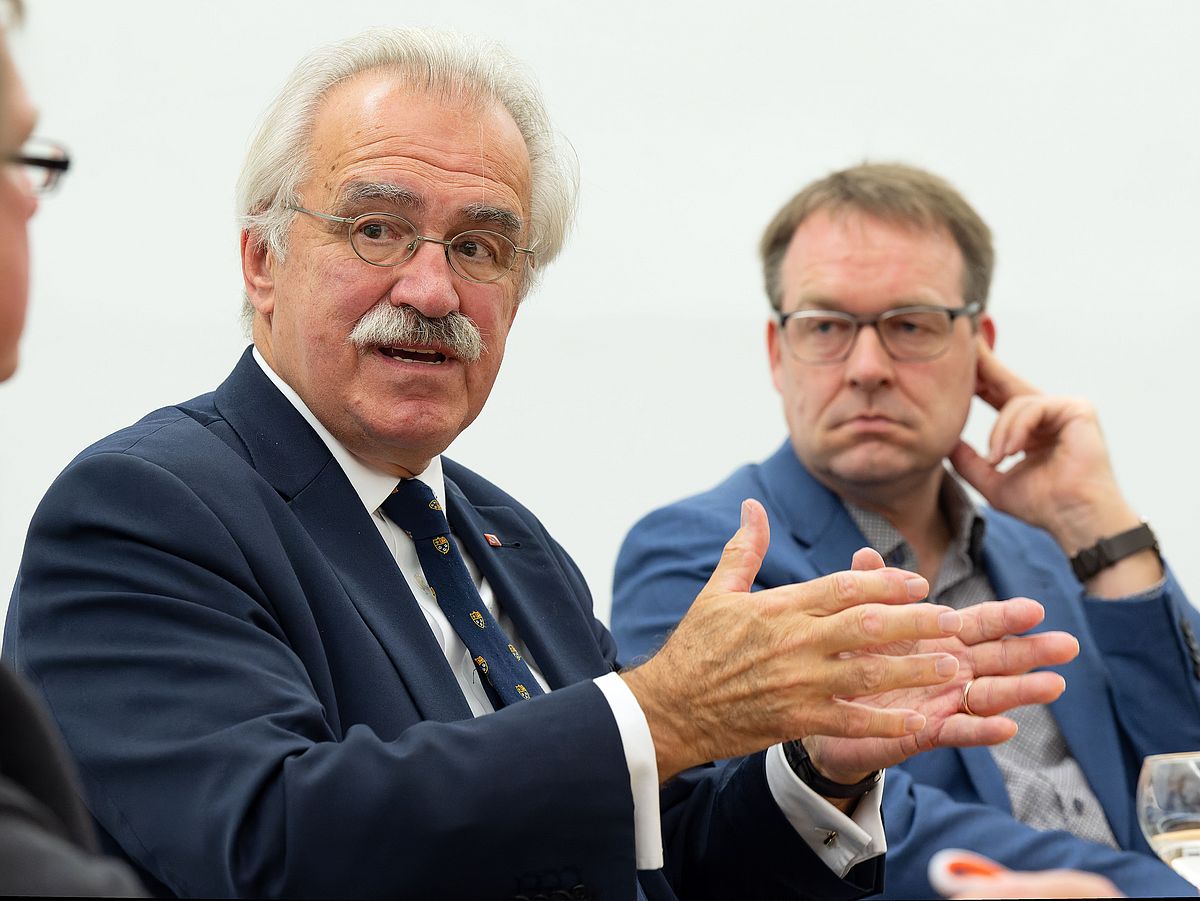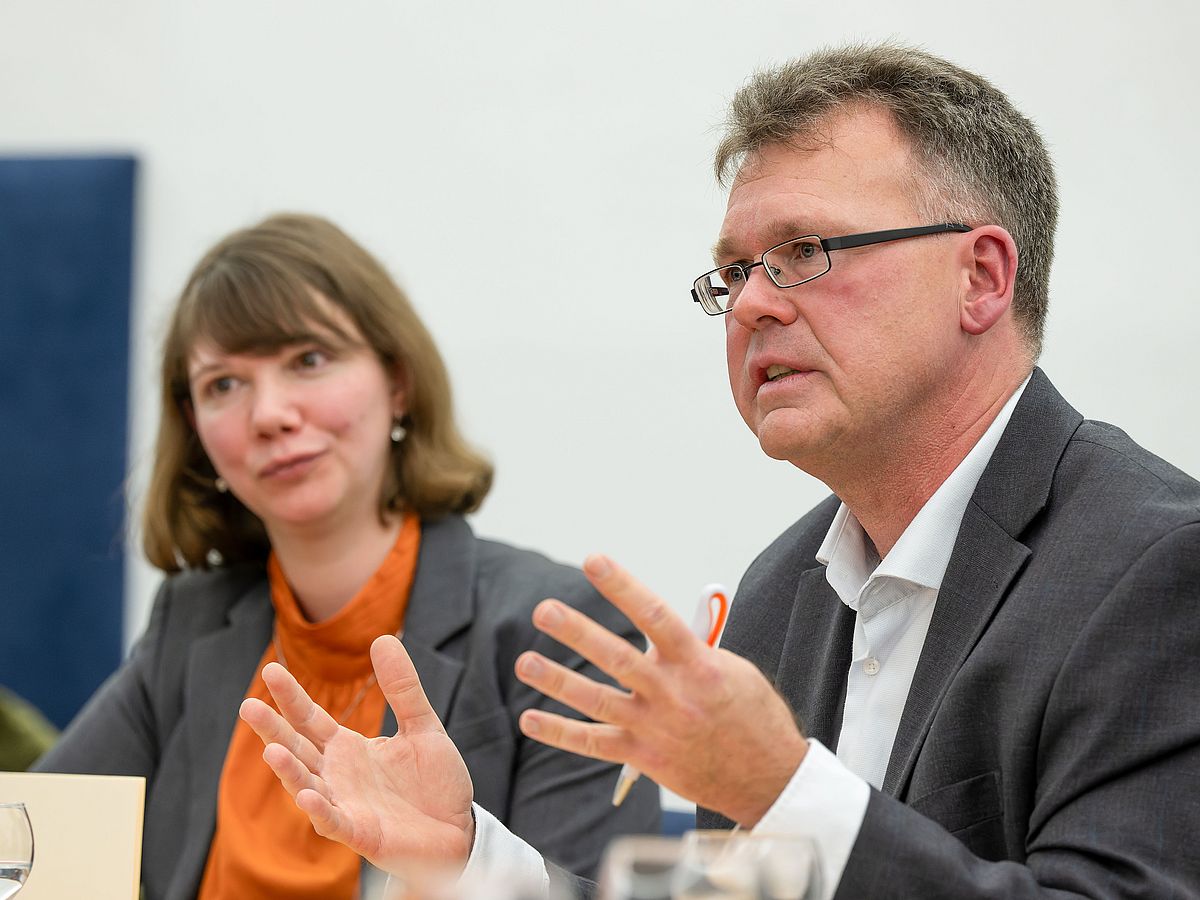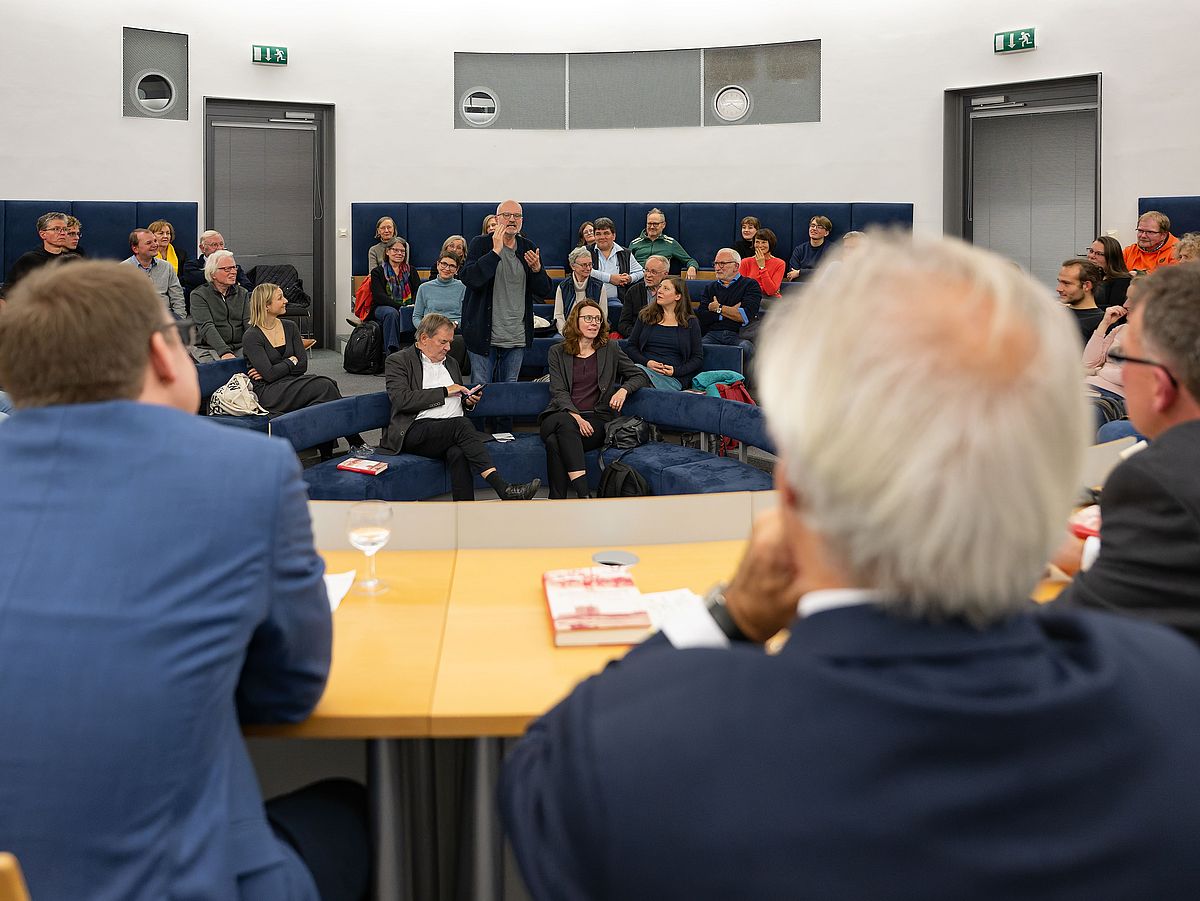Book launch: Aufbruchstimmung (In the Mood of Change)

“So much change was rare in Bremen,” writes Bremen historian Cornelius Torp at the beginning of his recently published monograph Aufbruchstimmung: Die Universität Bremen und das Projekt Hochschulreform. The collection of essays sheds light on the state of tension in which Uni Bremen, likely the most-profiled German reform university of the 1970s, found itself: between a downright boisterous, adventuresome and often bright pioneering spirit at one pole and the “sinister image of a left-wing cadre training ground” at the other. The book, which is well worth reading, was launched at a well-attended panel discussion event. And with that, proof that at least one characteristic has remained constant since the university’s founding years: critical reflection paired with rollicking good fun.
"We didn’t really come in with a pioneering spirit," said our alumnus Peter Senft during the panel discussion, referring to the very first generation of a few hundred students who started at the University of Bremen in 1971. "Many of us came via the second-chance route after an apprenticeship and quite soberly regarded studying at university as simply the next stage of education." In fact, they ended up in a real-life educational policy experiment, whose endless but also inspiring discussions quickly became a hallmark of the university. Teachers and students, often together, worked out many university structures through daily practice, as they went along. “In the law programme, we didn’t get exam regulations until several semesters in," reported Senft. "The one-third parity co-determination model meant that there were 275 committee places for 429 students.” This elicited astonished laughter from the younger members of the audience. Co-determination was, according to Torp, a central reform idea for breaking down the fossilised structures that hindered academic advancement in the traditional old universities, where full professors were in charge of all university matters. Uni Bremen led the way in co-determination in Germany, going much further than other reform universities such as the ones in Konstanz and Bielefeld. However, in 1976 these reforms were largely reversed by a new Higher Education Framework Act.
According to Torp and his historian colleague Moritz Mälzer, debates about reform universities often overlook the fact that student numbers exploded in the post-war period – a global trend in the implementation of a “scientification”paradigm – and thus made it necessary to come up with completely new operational structures in order to cope with the masses of students.
Do the reform movements of the early years still shape the university today? "We conduct academic programmes and research on an interdisciplinary basis and with a sense of social responsibility. That’s part of the University of Bremen's DNA," says Uni Bremen Rector Jutta Günther. And it is also reflected in the university's recently published new mission statement, which places a strong focus on climate protection.
Helmut Zachau, alumnus and well-known student activist in the 1970s, noted that Uni Bremen had set completely new standards at the time with its project-based studies and practice-oriented teacher training. Today however, these productive reforms have unfortunately faded into the background.
What has remained of the reforms in daily life? A question for Rector Günther from Christine Strotmann, who capably lead the discussion. "Unlike many of my colleagues in other rectorates, I don't have to wear a chain of office. I'm very happy about that." An answer that met with amusement all around.




